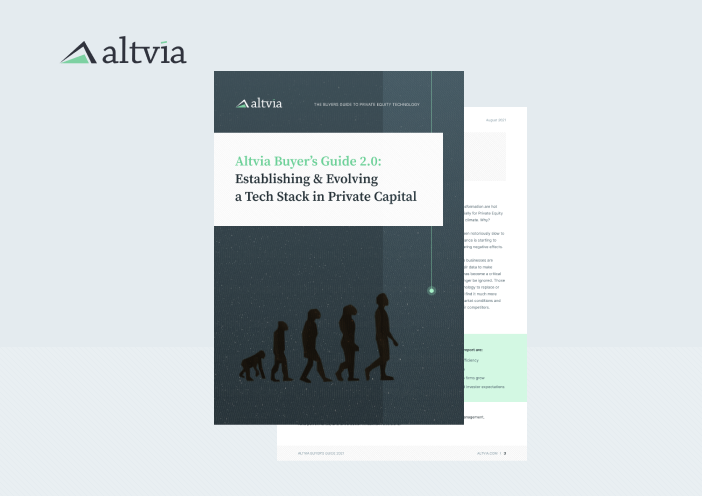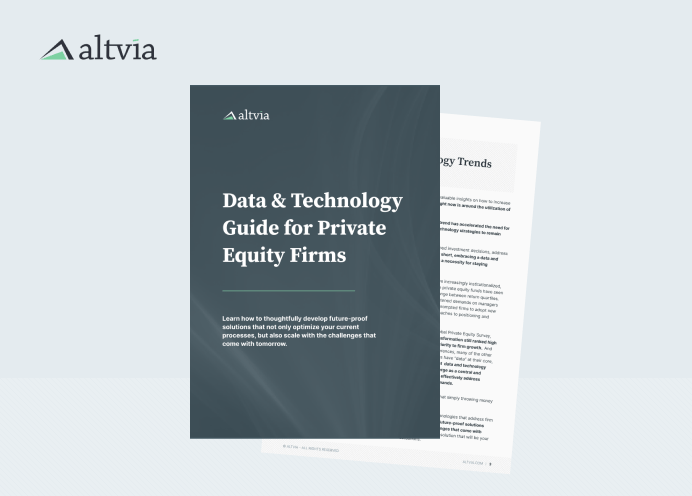Guides
Our guides are designed to help you and your firm stay up to date with the latest market insights, and actionable steps to evolve.

Free Guide | The PEriodic Table of Technology
The traditional CRM is built for “customer” scenarios and provides a generic solution that many industries can use.

Free Guide | Buyer’s Guide 2.0: Establishing & Evolving a Tech Stack in Private Capital
Talk of digitization and digital transformation are hot topics for all industries, but especially for Private Equity and Venture Capital in the current climate. Why?

Free Guide | The Buyer’s Guide to Technology
Today’s software not only brings the kind of efficiency both firms and Limited Partners expect, but it also differentiates you from the competition.

Free Guide | Data & Technology Guide for Private Equity Firms
Learn how to thoughtfully develop future-proof solutions that not only optimize your current processes, but also scale with the challenges that come with tomorrow.

Free Guide | How To Create An Excellent LP Experience
It’s increasingly difficult for General Partners (GPs) to differentiate themselves. The appetite for risky deals is lower than previous periods so fund returns converge to similar levels more often.

Free Guide | How-To Win Deals in a Hyper-Competitive Market
We’re in the midst of a big shift. The world is changing every day, and there’s uncertainty in our lives and the market.
Preferred Return Podcast
The Private Equity Techstack Podcast
This is a podcast about the role of technology in private equity and venture capital. Our hope is to bring together the best and brightest across the industry and have them share best practices, trends they’re seeing, and how firms use technology to gain an edge in the market.